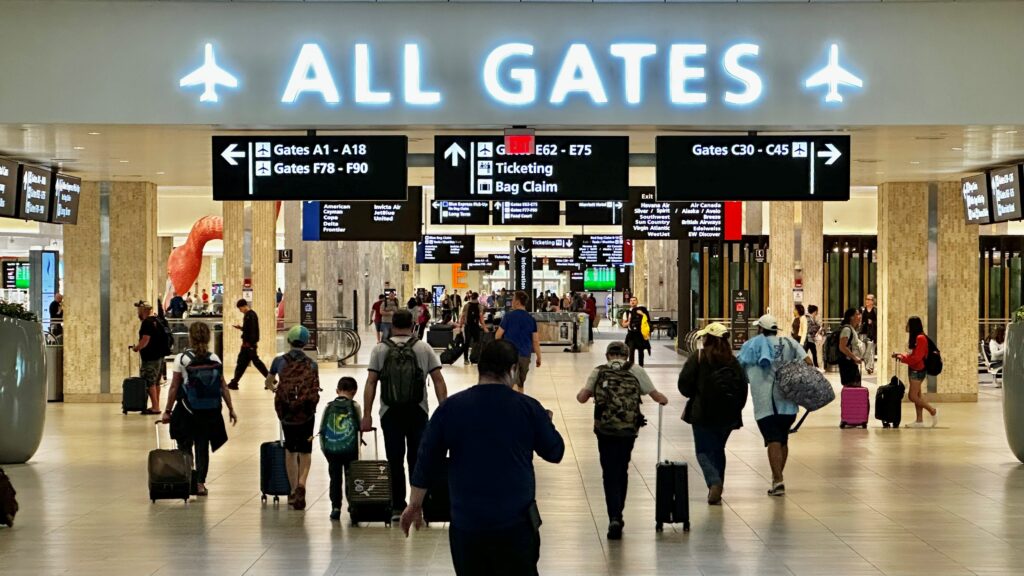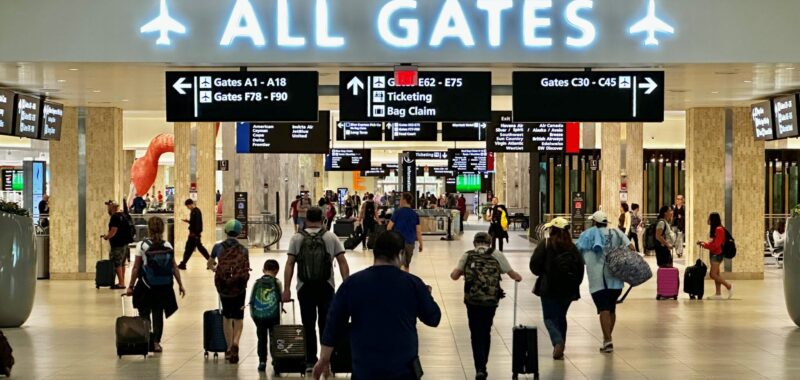
Skift Take
The investigation seeks to determine whether recent industry trends like devaluing the worth of miles and consolidation have adversely affected consumers.
The Department of Transportation officially launched an inquiry Thursday into whether the loyalty programs of the four largest U.S. airlines have engaged in unfair, deceptive or noncompetitive practices.
The department said its probe would focus on how frequent flyer programs are impacted by the devaluation of miles, hidden and dynamic pricing, extra fees, along with reduced competition and choice.
Transportation Secretary Pete Buttigieg sent a letter to American Airlines, Delta Air Lines, United Airlines and Southwest Airlines requesting them to provide records and reports about their loyalty programs, practices and policies.Â
Skift has contacted the four airlines involved for comment.
âThese programs bring real value to consumers, with families often counting on airline rewards to fund a vacation or to pay for a trip to visit loved ones,â Buttigieg said in a statement. âBut unlike a traditional savings account, these rewards are controlled by a company that can unilaterally change their value.â
The DOT also expressed concerns that mergers within the industry could lead to less competition and choice among loyalty programs. When two airlines merge, a combined loyalty program could create issues for customers if they lose rewards, value or status in the transition, the department said.
The letter Buttigieg sent to the airlines includes a lengthy questionnaire. One asks airlines to detail each change theyâve made to their loyalty programs since 2018. Another asks airlines how the dollar value of a mile has changed in the last six years.
Loyalty Programs Are a Lucrative Asset for Airlines
The DOT first announced in November that it would investigate the fairness of loyalty programs. It also hosted a panel with the Consumer Financial Protection Bureau in May. The four largest airlines were notably not present for that panel.
CFPB director Rohit Chopra said in May that the agency found airlines were selling inflated points to consumers while credit card issuers would receive the same points at a much lower price.
âThis not only creates confusion about the true value of the points but also raises some questions about fairness,â he said at the panel.
Loyalty programs are often one of the most lucrative assets for an airline. For example, Delta received $1.9 billion in the second quarter from its deal with American Express, which includes a co-branded credit card. Revenues for Delta SkyMiles also rose 8% in the second quarter.
United spun off its United MileagePlus program into a subsidiary worth $22 billion.
Trade group Airlines for America estimates that 30 million Americans hold an airline credit card and 63% of frequent flyer miles were issued through credit card spending.Â
Airlines Sector Stock Index Performance Year-to-Date
What am I looking at? The performance of airline sector stocks within the ST200. The index includes companies publicly traded across global markets including network carriers, low-cost carriers, and other related companies.
The Skift Travel 200 (ST200) combines the financial performance of nearly 200 travel companies worth more than a trillion dollars into a single number. See more airlines sector financial performance.
Read the full methodology behind the Skift Travel 200.

